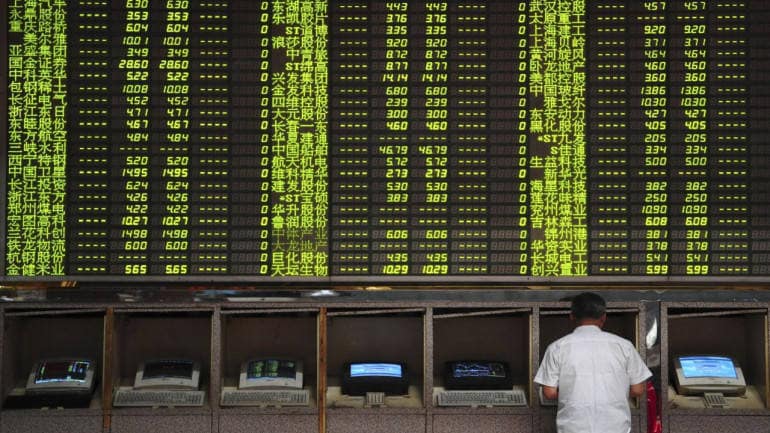‘Weak global market affecting secondary market, investors turn to primary market’
 ]
]
Domestic indices started with a gap-up maintaining the ascendancy of last week, from the strong mutual fund (MF) & retail inflows. Weak domestic data like contraction in manufacturing & service PMI had no negative impression on the Indian market that is focusing on the future benefit from unlocking. Initially, India was decoupling despite the mixed sentiment of global equity market and sell in US Bond, ahead the announcement of FOMC minutes. The released note was in-line with expectation but did not have any positive effect on the market, the weakness continued. The weakness increased because of sell-off in US10year bond yield, which crumpled from 1.55 percent to 1.35 percent, steepest monthly fall in more than a year, influencing the equity market. Strong US job data released signaled that the economy is recovering at a steady pace while rising threat of delta variant to economy recovery eased concerns over earlier-than-expected Fed rate hike.
Indian market weak performance was driven by financial stocks, as business updates of major Banks and NBFCs showed improvement in the business activity in Q1FY22, minimising concerns over second wave impact on asset quality & loan growth. Healthy pre-sale numbers boosted buying interest in realty stocks and metal stocks followed the trend. But continued weak global market, surge in oil prices & profit booking breached the overall market by the end of the week.
Going ahead mixed global cues and weakness in Asian markets, especially in China & Hang Seng as the government clamps against large private companies, will increase domestic volatility. Focus will be on upcoming Q1 FY22 results, on which market was already cautious being expected to be slower than last quarter due to second wave effect. Initially spotlight will be on IT heavyweights’ results. TCS already started with lower-than-expected results, which will have a negative effect on the short-term.
Other than this, investors interest is more on new business IPO offerings. This month focus will be on primary market than secondary market. Record high fund-raising plans of Rs 25,000 crore is forecasted in the near-term from primary market, which will have a negative effect on secondary market liquidity, in the short-term. For retail investors, since the overall interest on ongoing IPOs is very high, the change of allotment for small size offers will be low. In that the probability will be highest in small lot size. In the case of big & mega IPOs, the probability will increase rapidly. Having said that, the expectations on listing gains and short to medium term stock performance will be moderate. This is because of lower subscription & high valuation of such companies. And in the end, the performance of the future stock prices will depend on the business model, industry outlook and profitability.
- The rally since 2020 March lows was highly supported by high retail inflows. High domestic retail participation was triggered by global rally, attractive prices, rise in risk taking appetite given lack of substantial change in personal income, fall in cost of leverage and rise in free time. The long-term benefit to Indian market from rising appetite of retail investors will continue to help. While in the short to medium-term, it will heavily depend on the trend of global market which in turn rely on accommodative monetary & fiscal plans maintaining the lucrativeness of equity asset. Ultimately, it depends on the ability of retail investors to maintain profits in trades. Today, global market is undergoing a phase of consolidation. It seems short-term in nature as overall factors which adds effectiveness of equity assets is intact. In addition to global factors, premium valuation and possible slowdown in secondary market liquidity can influence inflows of retail investors, this is at a time when FIIs are on a selling mode that would affect the momentum of Indian Market.
-
The views and investment tips expressed by investment expert on Moneycontrol.com are his own and not that of the website or its management. Moneycontrol.com advises users to check with certified experts before taking any investment decisions.
Top 10 things to know before the market opens
 ]
]
The Indian stock market is expected to open muted as trends on SGX Nifty indicate a flat opening for the index in India with a 10 points gain.
The Sensex closed 392 points higher at 52,699, while the Nifty50 gained 103 points to end at 15,790.
According to pivot charts, the key support levels for the Nifty are placed at 15,721.67, followed by 15,652.83. If the index moves up, the key resistance levels to watch out for are 15,840.37 and 15,890.23.
Stay tuned to Moneycontrol to find out what happens in the currency and equity markets today. We have collated a list of important headlines across news platforms which could impact Indian as well as international markets:
US Markets
The Nasdaq and the S&P 500 indexes hit all-time highs on Thursday, with the Dow also jumping, as U.S. President Joe Biden embraced a bipartisan Senate infrastructure deal.
The Dow Jones Industrial Average was up 1.04% at 34,225.35 points, while the S&P 500 gained 0.66% to 4,269.79. The Nasdaq Composite added 0.72% to 14,374.56.
Asian Markets
Asian markets were mostly higher tracking US markets overnight. Nikkei and Hang Seng rose 0.5 percent each, while Kospi and Taiwan index gained 0.7% each.
SGX Nifty
Trends on SGX Nifty indicate a flat start for the broader index in India, with a gain of 10 points. The Nifty futures were trading around 15,847 level on the Singaporean Exchange around 07:20 hours IST.
Reliance AGM 2021 | Here are the key announcements made by Chairman Mukesh Ambani
Reliance Industries (RIL) held its 44th annual general meeting (AGM) on June 24. The company’s chairman Mukesh Ambani, while addressing the shareholders, made a number of announcements across its telecom, retail and O2C business segments.
Google and JIO teams have jointly developed a breakthrough smartphone called JIOPHONE Next. The fully-featured smartphone supports the entire suite of applications from both Google and JIO, as well as the Android Play Store through which users will have access to the entire universe of Android Apps, Ambani said.
The Renewable Energy Project Management and Construction Division will provide gigawatt scale end-to-end solutions for large renewable plants across the world. “It will enable and partner with thousands of Green MSME Entrepreneurs, who can deploy kilowatt to megawatt scale solutions in agriculture, industry, residences and transportation. It will provide finance solutions to the stakeholders in our ecosystem,” Mukesh Ambani said.
RIL further announced the launch of new energy business in 2021 with the aim of bridging the green energy divide in India and globally.
India urges OPEC to phase out production cuts; bats for reasonable crude prices
Petroleum minister Dharmendra Pradhan has urged the Organization of the Petroleum Exporting Countries (OPEC) and allies – collectively known as OPEC+ – to phase out production cuts and also emphasised that crude prices should remain within a reasonable band.
“I took the opportunity to express India’s deep concern on increasing crude oil prices and its impact on consumers as well as on smart economic recovery. I emphasised that high crude prices is adding significant inflationary pressure on India,” Pradhan tweeted after the interaction. He added that the rise in crude prices and resulting fuel retail price in India is affecting smart economic recovery in the country.
RBI issues guidelines for NBFCs to declare dividend
The Reserve Bank of India (RBI) on June 24 issued guidelines that spell out the eligibility criteria for non-banking finance companies (NBFCs) to declare dividends. The RBI said the new rules are framed in order to infuse greater transparency and uniformity in practice.
The new guidelines will be effective for declaration of dividend from the profits of the financial year ending March 31, 2022 and onwards, the RBI said. According to the new rules to become eligible to declare dividend, an NBFC need to meet the applicable regulatory capital requirement for each of the last three financial years including the financial year for which the dividend is proposed.
Gold holds steady as traders seek direction from U.S. data
Gold prices held steady on Friday as investors awaited U.S. inflation data due later in the day after mixed signals from Federal Reserve officials this week on interest rate hikes.
Dollar firm as traders brace for U.S. inflation data
The U.S. dollar held near multi-month highs on Friday as investors warily awaited U.S. inflation data, while the pound nursed modest losses after Bank of England (BoE) policymakers leaned away from flagging rate rises.
Near-term global bond market correction likely
A significant global bond market correction is likely in the next three months as central bankers eye the exit door from pandemic emergency policy, according to a Reuters poll of strategists who also forecast modestly higher yields in a year.
Sebi plans to come out with framework for SPACs
Capital market regulator Sebi is planning to come out with framework on special purpose acquisition companies (SPACs), which will enable listing of startups on domestic stock exchanges, sources said on June 24.
The regulator is expected to put in place guidelines in this regard next week, they added.
With inputs from Reuters & other agencies
Asia opens higher, but China tech worries weigh on Hong Kong
 ]
]
Most Asian share markets opened a fraction higher on Tuesday, ahead of a key decision by Australia’s central bank on its quantitative easing programme and despite ongoing concerns over the future regulation of China’s powerful technology sector.
U.S. markets were closed on Monday to mark the Independence Day holiday, leaving the Asian region without a strong lead to start trading on Tuesday.
MSCI’s broadest index of Asia-Pacific shares outside Japan was up 0.05%.
In Hong Kong, the Hang Seng Index was down 0.7% while China’s CSI300 was off by nearly 0.3%.
Japan’s Nikkei was up 0.45% while the S&P ASX200 stood 0.21% higher. In South Korea, the Kospi 200 Index rose 0.5% in early trade.
Chinese technology stocks remain under the microscope on Tuesday after the Cyberspace Administration of China (CAC) ordered an investigation into Didi Global Holdings just days after it listed on the New York Stock Exchange.
“There is still lingering uncertainty from China’s tech companies and they are prominent in the Asian market, so that could be a cloud for market sentiment,” said Tai Hui, JPMorgan Assset Management chief Asia market strategist.
“The tech sector is very significant in Asia and we are not going to have a lot of clarity on the regulatory adjustments in China for the next few weeks or even months and (that) will be an important driver for the market.”
Investor appetite for Chinese tech companies could be tested by Xiaomi Corp mandating 12 banks on Tuesday to lead a potential U.S. dollar debt issuance.
In Australia, the prospect of more mergers and acquisitions activity is being scrutinised by investors after a $16.7 billion bid for Sydney Airport Holdings Ltd from a pension fund consortium emerged on Monday.
“Sentiment appears to have almost moved past the (economic) reopening trade and into outlook for corporate earnings that are coming up in August,” Karen Jorritsma, head of equities at RBC Capital Markets in Sydney told Reuters.
“Generally (earnings) ‘confession season’ has been remarkably good, and with balance sheets in such great shape the tide is turning to potential for M&A.”
Globally, the publication of the U.S. Federal Reserve’s Federal Open Markets Committee minutes for June on Wednesday is highly anticipated by investors for guidance on whether ongoing emergency stimulus measures could start to be tapered.
Major European markets were in positive territory overnight despite a jump in the Brent crude price to above $77 a barrel, the highest level since October 2018.
The spike came after OPEC+ ministers called of discussions on Monday after clashing last week when the United Arab Emirates rejected a proposed eight-month extension to output curbs, meaning no deal to boost production has been agreed.
There has been no date set for the next meeting of ministers of OPEC+ countries - the Organization of the Petroleum Exporting Countries (OPEC) and allied producers including Russia - but sources told Reuters new discussions could begin in the next few days.
Elevated oil prices are adding to concerns that a higher global inflation rate could derail the post-coronavirus pandemic recovery under way in some major world economies.
The Reserve Bank of Australia is expected to keep the official cash rate target on hold at 0.1%, but has flagged it will announce its decisions on the broader quantitative easing programme which is set to end in September.
Economists predict the RBA will limit its three-year bond yield target of 0.1% to the April-2024 bond, rather than extending it to the November-2024 bond.